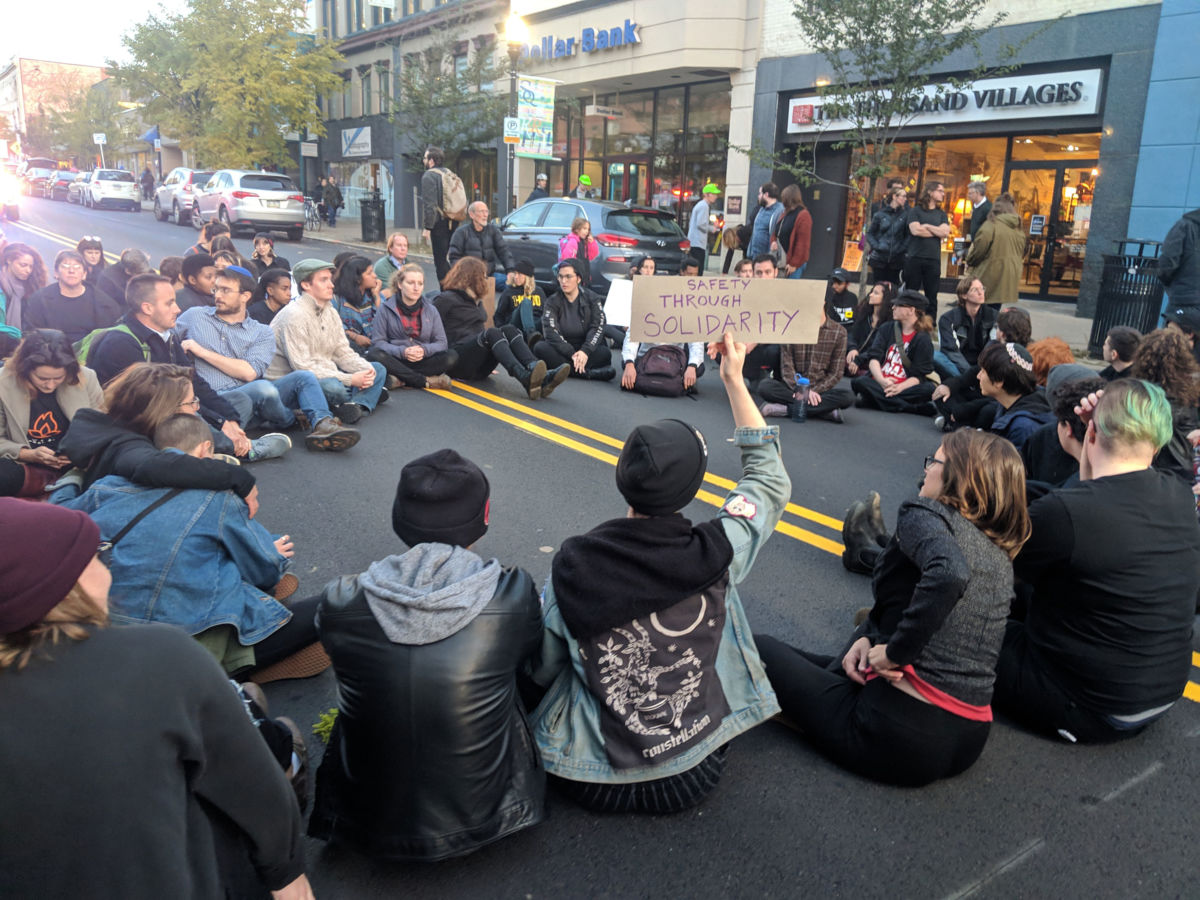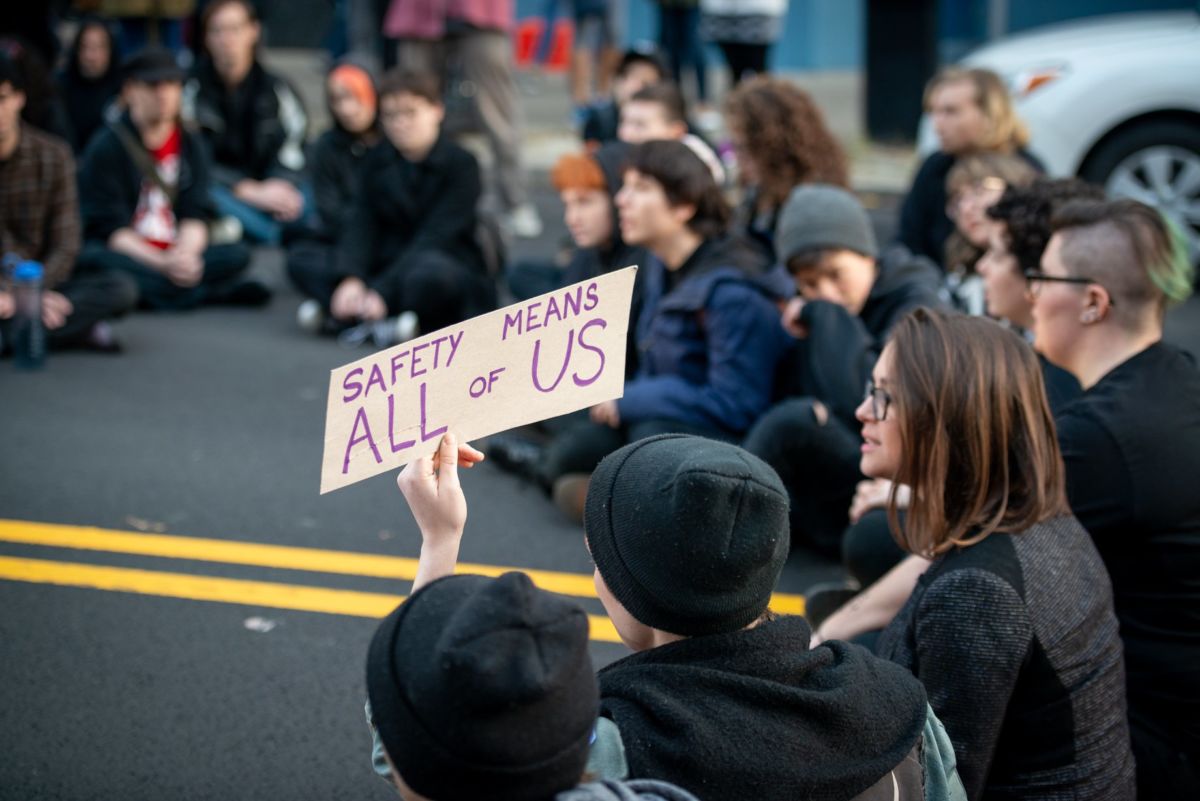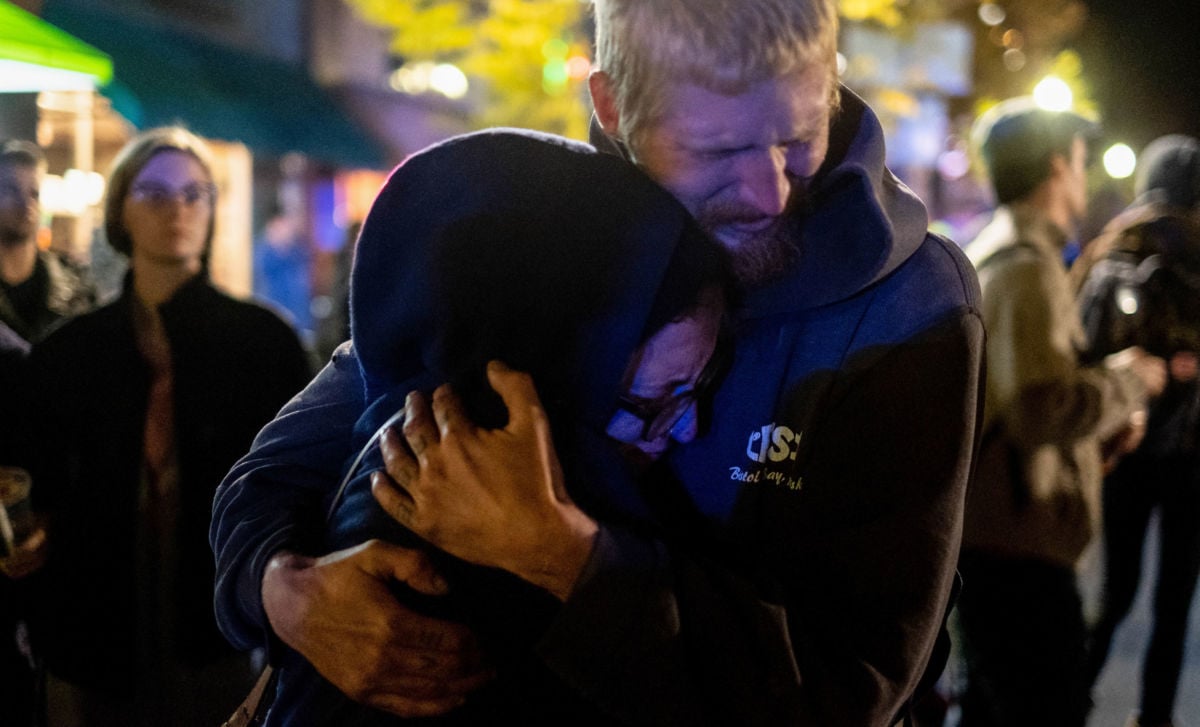Truthout is a vital news source and a living history of political struggle. If you think our work is valuable, support us with a donation of any size.
Daily, and sometimes hourly, we are assaulted by the latest losses. It isn’t simply that time and the news cycle have sped up due to so-called communication technologies. It’s that we’re in the crosshairs of history.
That history is being written on bodies — bodies that are piling up; sometimes our bodies, or those of people we love. It is etched onto place-names as our morbid shorthand — Charleston, Charlottesville, Pittsburgh. That history transforms ballot boxes into the equivalent of coffins in countries like Brazil.
History seems to be happening to us, an increasingly out-of-control and inevitable narrative that doesn’t end well, yet may end soon. For among other things, we are in a climate where even the climate itself is targeting humanity for disappearance.
There is little need, of course, to make any sort of accounting of the weight of this world. Already, in even gesturing at the enormity of this moment, we feel the fear and depression creeping in, the sorrow and hopelessness taking hold.
We’ve been taught by past rebels, to paraphrase Joe Hill, not to mourn but instead to organize. Today, though, given the magnitude of the new forms of domination that we face, there’s a palpable sense of despair about the possibility of organizing. All the weapons in our arsenal appear useless, outdated, futile. And even if we wanted to mourn, we come up against another contemporary conundrum: the loss of traditions around grief, of knowing how to grieve well or at all, much less in community with others. We confront our own inability to know how to share and hold our own and each others’ feelings, much less the full range of them.
Yet we must.
Or rather, we don’t have a choice. This crossroads is deeply impacting our hearts, whether we want to admit it or not.
Too many of us desperately try to stuff our emotions into the deepest recesses of our consciousness. Too many have been socialized to believe that feelings, especially those around grief, aren’t acceptable, natural or brave. Increasingly, the highly profitable “care industry” has convinced us that when we experience the worst of losses in our lives, we should “step back” to care for ourselves on an individual level, on our own. Our minds and bodies are turned into pressure cookers, waiting to explode in detrimental ways, further alienating us from each other.
We can, conversely, reclaim our capacity to be fully human in all our messy beauty and specifically, as counter to this messy, ugly time period. We can self-determine to mourn and organize together.


This rebellious mourning begins with more questions than answers, because none of us knows any easy way of this epoch. For instance, as Marko Muir, a longtime anti-eviction organizer and friend in the class-war zone of San Francisco, mused last week, “Is it really hate we are fighting or the system that creates haters with the power to erase us? Is it really hope we are longing for or a collective grieving and a more joyful militancy to fight back against that erasure?”
We can start with the question, Mourn what? To which we might reply, All that’s being stolen from us, and all that we’re told isn’t grievable.
We mourn all the innumerable losses that aren’t necessary to how we’re structured as humans — say, to be born and die in our own good time — but indeed are the logical “collateral damage” of hierarchical forms of social organization — capitalism and states, white supremacy and heteropatriarchy, anti-Semitism and settler colonialism, to name just a few. We mourn all that doesn’t garner a marble monument or even a humble tombstone. We mourn all that we shouldn’t have to bear losing and mourning, if we were to inhabit a far more egalitarian, humane world. We mourn all that we love.
And another starting point is, Organize what? To which we might respond, All that we need and desire, toward lives worth living, as direct actions against the structural violences and losses that we are being compelled to suffer.
We must organize everything for everyone, as mutual aid against the disasters that are battering us from all sides. We must organize forms of care and dignity that defy commodification, containment, or social control. That is, all that we can prefigure, empathetically and materially, to remain steadfastly side by side with each other, even or especially if the worst should occur. We must organize all that we love.
Mourning and organizing — not as separate moments, but as an intimate and tender dance. The voluntary conjoining of the two as a renewed promise of social love in how we go about experimenting, in the here and now, with forms of freedom against forms of fascism.
This is not mere hyperbole. It was put into practice last week in the wake of the Tree of Life Synagogue murders, for one, when Trump thought he could come to Pittsburgh.
On Tuesday, October 30, 2018, just a few days after the massacre on Saturday, October 27, IfNotNow Pittsburgh, self-described as “part of a larger movement to end of Occupation” in Palestine/Israel, led a coalition of other groups in holding a shiva, a “Jewish ritual of mourning and community healing,” in the streets.
As IfNotNow explained, “Today, President Trump will visit Pittsburgh. We do not need him. We stand with each other and mourn for our dead, and show up to protect each other…. We stand in solidarity with all the communities threatened by white nationalism. That’s why we say ‘Safety in Solidarity.’”
Trump’s motorcade was temporarily thwarted that day from reaching the Tree of Life by hundreds of mourners, in what one newspaper called a simultaneous act of “street protest” and “sitting shiva,” noting that Trump was “turned away by the grief of a city that didn’t want him anywhere near.”
This is but one illustration of the power of collective grief. Or rather, the art of collective grief, when we permit ourselves to make visible and share the wholeness of our emotions, authentically, thus giving meaning to losses such as, in the span of one week, the anti-Black murders in Kentucky and anti-Semitic murders in Pittsburgh, and making them more bearable. When we join hand in heart, noninstrumentally, without any effort to fix or cure what can’t be undone, or pretend the loss didn’t occur, or skip over our grief by leaping into action for the sake of action, but instead be witness to each other’s excruciating feelings as inseparable from how we organize our lives and organizing.
Through that connection, through acts of tangible reciprocal care and active listening to each other’s stories with curiosity, we form interdependent bonds. Those bonds, in turn, become co-teaching moments in how we can and should better safeguard each other, without need of state and capital, police and prisons. We remember we are not alone but instead, deeply have each other.
During a vigil in Ann Arbor, Michigan, on the Sunday after the Tree of Life murders, Shira Schwartz, a Ph.D. student in comparative literature and Judaic studies, highlighted the notion of “shemira: to safeguard.” As Schwartz put it, “We have many different forms of shemira in the Jewish tradition…. One example of this is the shemira for dead bodies between the time of death and burial. In this liminal space between death and burial we watch over each other. That is the time-space that we are in now.”
Through such continual practices of collectively mourning our dead and collectively fighting like hell for the living, we’ll increasingly find various possible answers to the many painful questions that we’re being forced to ask these days. Moreover, we’ll increasingly create our own time-spaces, peopled with self-organized and expansive forms of empathy, care, and love. And even if tentatively, such time-spaces will point toward a world in which our unnecessary losses are banished to the dustbin of history.
A terrifying moment. We appeal for your support.
In the last weeks, we have witnessed an authoritarian assault on communities in Minnesota and across the nation.
The need for truthful, grassroots reporting is urgent at this cataclysmic historical moment. Yet, Trump-aligned billionaires and other allies have taken over many legacy media outlets — the culmination of a decades-long campaign to place control of the narrative into the hands of the political right.
We refuse to let Trump’s blatant propaganda machine go unchecked. Untethered to corporate ownership or advertisers, Truthout remains fearless in our reporting and our determination to use journalism as a tool for justice.
But we need your help just to fund our basic expenses. Over 80 percent of Truthout’s funding comes from small individual donations from our community of readers, and over a third of our total budget is supported by recurring monthly donors.
Truthout has launched a fundraiser to add 310 new monthly donors in the next 4 days. Whether you can make a small monthly donation or a larger one-time gift, Truthout only works with your support.
